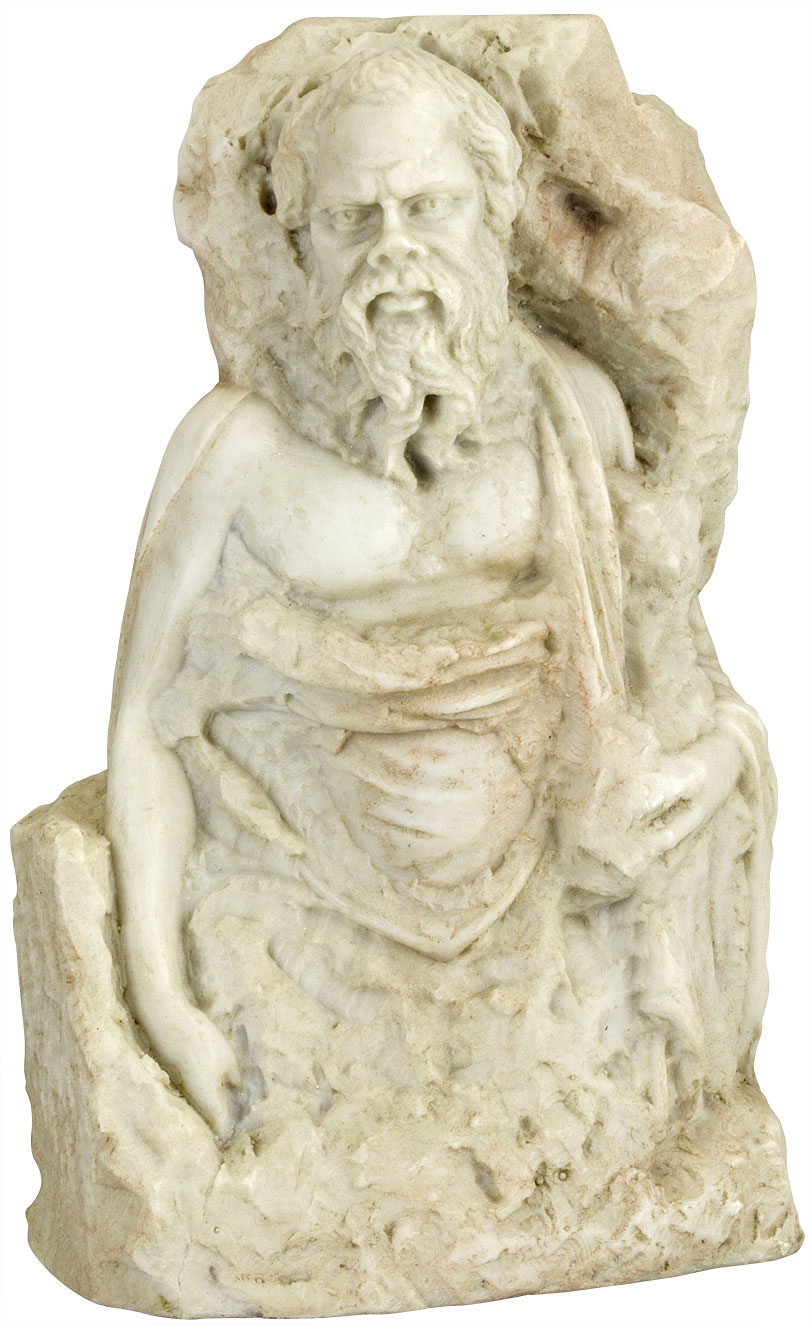€228.00
Product number:
23905879533
Product information "Sculpture 'Socrates', artificial marble"
'I know that I know nothing' was to become the essence of the teaching of the man whom the Delphic oracle proclaimed to be the wisest of his time. In Delphi, the god Apollo had killed the dragon Python. The spirit had overpowered the spirits of the animate and inanimate world. The Greeks had thus erected a temple to reason. Socrates was born into this already enlightened age, the son of a midwife and a stone carver. We do not know whether Socrates followed in his father's footsteps, but he had the money for equipment and weapons to take part in three campaigns as a hoplite, in which he proved to be strong, prudent and courageous, for example when he pulled his injured friend Alcibiades and his weapons out of the thick of battle. We know from his students, first and foremost Plato, that Socrates, who wrote nothing himself, spent a large part of his life in the agora, the centre of life in Athens, in order to hold in-depth discussions with his fellow citizens. Whether with the craftsman, merchant, politician, judge or the wise sophist, he wanted to find out what was right and proper in their thoughts and actions. Socrates was convinced that the ability to recognise the good, as divine light, as a divine gift, as God, was inherent in every human being. Incidentally, in the biblical story of creation, the same, here positive, basic idea was constructed for the tragic fall of man. Socrates developed a form of probing, questioning dialogue, as a result of which the interlocutor often had to refute his originally supposed knowledge himself. He called this questioning technique his midwifery, his spiritual midwifery. Through his penetrating dialogues and his way of thinking, he made friends, such as those who later founded schools of philosophy in his spirit, but also enemies, whose vanity and careers he stood in the way of. For Socrates, ignorance or illusory knowledge was just as reprehensible as malicious deception, because: 'Man acts badly when he does not know what is good! How topical! True to the Delphic saying 'Know thyself', he never stopped searching for an ethical basis for correct thinking and behaviour in his love of wisdom, philosophy, for fundamental values such as virtue, justice or bravery. His opponents accused him. He was sentenced to death by the organs of the still pubescent democracy for 'corrupting the youth' and 'disrespecting the Greek gods'. He himself said in his defence speech that he should rather receive a lifetime of honours for his work, like the Olympic champions. Nevertheless, he accepted the wrongful conviction in line with his own moral standards, because 'it is better to suffer injustice than to do injustice'. He became immortalised with his sovereign way of going to his death. 'Don't forget to sacrifice a rooster to Asclepius' were his last words after he had drunk the cup of hemlock. Where is the Socrates of our time? In each and every one of us! Let this sincerely wise man watch over your decisions. Socrates (469-399 BC): Polymer museum replica. Art marble. Size 20 x 12 x 6 cm (h/w/d). Correct portrait of the philosopher as an unfinished work after a figure from the 4th century BC in the British Museum.


